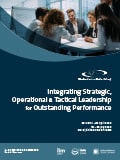An intensive professional development training course on
Risk Based Approach to Asset Integrity
Why Choose this Training Course?
The Structure
This comprehensive training course consists of two modules which can be booked as a 10-Day Training event, or as individual, 5-Day training courses.
Module 1 - Asset Integrity Management for the Petroleum Industry
Module 2 - Risk Reliability Management
The Course Content
Module 1: Asset Integrity Management for the Petroleum Industry
Day One: Asset Integrity Management
- Introduction to concept of Asset Management& Asset Integrity Management
- Asset Management Landscape process model
- The Asset Management System – Asset Management Policy – Asset Management Strategy – (Strategic) Asset Management Plans – line of sight
- Asset Management roles
- International standard on Asset Management: ISO 55000
- Certification
Day Two: Risk & Risk Assessment
- Approaches Used for Asset Integrity Management
- Identification & assessment of risk
- Risk management: using the risk matrix, risk register & hazard log
- Risk on business level, system level and asset level
- Several methodologies on different levels
- Contingency planning
Day Three: Risk Based Maintenance
- Deterioration: the way assets could fail
- The seven steps of Risk Based Maintenance (RBM) / Reliability Centred Maintenance (RCM) incl. Failure Mode Effects &Criticality Analysis
- Failure behaviour of onshore & offshore systems
- Choosing the right maintenance task
- Risk Based Inspection
- Practical application
Day Four: Life Cycle Management Aspects
- Life cycle of an asset
- Systems Engineering & RAMS specification
- Operational workflow
- Life time extension
- Performance measurement / KPI’s
Day Five:The Way Forward: Improvement Plan Workshop
- Assessment of current Asset Management performance (specific aspects)
- Drawing up an improvement plan / individual improvement plans to optimize the cost/ benefits
Module 2: Risk Reliability Management
Day Six: Operational Context and Functional Analysis
- Plant/equipment decomposition
- Criticality grading
- Identify primary, secondary functions
- Determine performance standards and quantify
- Practical: Perform functional analysis
Day Seven: Failure Analysis
- Failure modes
- The concept of ‘reasonably likely’
- Deterioration and damage mechanisms
- Physical damage mechanism
- Practical: Perform Failure Analysis
Day Eight: Failure Effects, Consequences, Probability and Risk
- Operational and financial risks
- Safety, health and environmental consequences
- Hidden failure consequences
- Practical: Perform Risk Analysis
- The six failure probability density curves
Day Nine: Risk-based Maintenance Tactics
- Tactic decision diagram
- Types of preventive maintenance tactics and how to select appropriate intervals
- Types of condition-based maintenance tactics how to determine the PF interval
- Function testing and failure finding and how to determine the interval
- Practical: Select and define appropriate maintenance tactics
Day Ten: Implement Risk-based Reliability Management
- The role of the facilitator
- Selecting and setting up the review projects
- Auditing the decision making
- Implementing the results
- Post course assessment
The Certificate
DO YOU WANT TOLEARN MORE ABOUT THIS COURSE?
© 2024. Material published by AZTech shown here is copyrighted. All rights reserved. Any unauthorized copying, distribution, use, dissemination, downloading, storing (in any medium), transmission, reproduction or reliance in whole or any part of this course outline is prohibited and will constitute an infringement of copyright.







